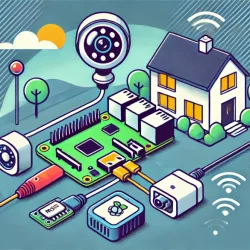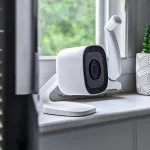Top 5 Safety Tips For Your Christmas Lighting
Christmas lights are key in creating the festive, welcoming atmosphere that characterises Christmas. The last thing you want is for an unexpected fire or electrical short to occur as a result of your Christmas lighting. Fortunately, such accidents are usually preventable. Here are our top five safety tips for your Christmas lighting.
Get lab tested Christmas lights
Not all Christmas lights are created equal, and some have undergone lab testing to ensure they adhere to safety standards while others have not. Never use Christmas lights that have not been safety tested. To ensure the Christmas lights you are getting are as safe as possible, check the packaging to ensure they have been lab tested and meet safety standards.
Get cooler light bulbs
Larger incandescent light bulbs tend to heat up much more quickly and intensely than smaller light bulbs. The hotter your bulbs get, the higher the risk of fire, so try not to get large bulbs unless absolutely necessary. The safest option would be to get solar powered Christmas lights, which use LED light bulbs rather than incandescent light bulbs. LED light bulbs use much less energy than incandescent light bulbs and thus do not heat up as much or as quickly.
Discard any faulty lights
If you detect any faults in your Christmas lights such as frayed wiring discard immediately. Any broken bulbs should be replaced immediately. Faulty wiring is a common cause of fires. Even after installing your Christmas lights, be cognizant of any damage that might be caused for instance by accidentally tugging on a strand of lights or tripping over wires. Inspect your Christmas lights for damage regularly even after they have been installed.
Never use lights meant for indoor use outdoors
Certain types of Christmas lights, usually traditional Christmas lights with incandescent bulbs, are meant strictly for indoor use. Solar powered Christmas lights tend to be more suited to outdoor use as they do not contain electrical wiring that can pose a danger when damaged or wet. The packaging should indicate whether your Christmas lights can be used outdoors.
Turn your lights off when you leave the room
Christmas lights are not meant to be left on all day and all night long, and you should never leave your Christmas lights on when you leave the house. You do not want to run the risk of a fire breaking out when you’re not home. Solar powered Christmas lights do not run on electricity and thus do not need to be turned on and off. They automatically stop running when the solar power absorbed during the day has run out and are thus the safer option if you have a tendency to forget to turn your lights off.
Christmas lighting is an essential component of most people’s holiday decorations but is also one of the most hazardous due to the possibility of fires or electrical shorts. Fortunately, if you observe a few basic safety precautions you can lower your risk of such occurrences considerably.
Michelle Forsyth is a self-employed writer and blogger with a BA from Melbourne University. When Michelle is not writing or blogging she spends time with her two kids and spends time online shopping, her favorite website is OO.com.au!
More to Read:
Previous Posts:




